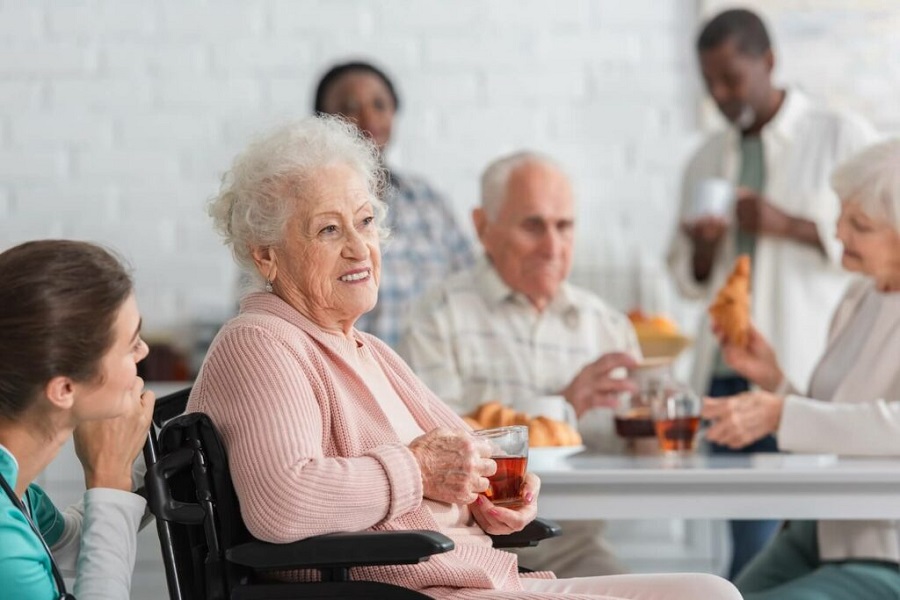As people get older, staying healthy and independent becomes a priority. Many seniors prefer to continue living on their own. Still, they may find that mobility changes, evolving health needs, or a desire for more social interaction make daily life more complex. An assisted living community provides the right balance of support and autonomy, offering services that promote well-being while allowing residents to maintain control over their lives.
Personalized Care that Respects Independence
A common concern about assisted living is the fear of losing freedom. In reality, these communities are designed to empower residents, providing just the right amount of support while respecting personal choices.
Caregivers offer assistance with daily tasks like dressing, mobility, and medication management, but only when needed. Flexible care plans ensure each resident gets individualized attention while maintaining as much independence as possible.
A Secure and Accessible Living Space
Safety is a priority in any assisted living community. With 24/7 on-site staff, residents and families have peace of mind. Thoughtfully designed spaces include grab bars, emergency call systems, and accessible layouts to reduce fall risks. Many communities also provide fall prevention programs and mobility support.
Security measures like controlled access and routine wellness checks also ensure a safe and comfortable environment.
Comprehensive Health and Wellness Programs
Staying active is key to overall well-being. An assisted living community offers various fitness classes, including strength training, mobility exercises, and activities like yoga and tai chi, all tailored to residents’ abilities. Many also provide healthcare services such as routine checkups, physical therapy, and medication management, ensuring seniors maintain optimal health.
Beyond physical health, mental well-being is equally essential. Memory care programs, cognitive exercises, and support groups help residents maintain mental clarity and emotional balance. These resources are especially beneficial for individuals facing conditions like dementia or Alzheimer’s.
Nutritious Meals and Social Dining Experiences
Proper nutrition is vital to overall wellness. Assisted living communities prioritize well-balanced meals, often created by nutritionists, to accommodate dietary needs like diabetes management, heart health, and allergies. Many communities emphasize fresh, locally sourced ingredients through farm-to-table dining, ensuring high-quality, nutritious meals.
Residents enjoy restaurant-style dining with diverse menu options, making mealtime both nourishing and enjoyable. Cooking demonstrations and nutrition workshops further engage residents, encouraging lifelong healthy eating habits. Additionally, shared dining experiences foster social connections, adding warmth and joy to every meal.
Meaningful Social Activities and Lifelong Learning
Social interaction is essential for emotional and cognitive health. Assisted living communities offer group outings, hobby clubs, and educational workshops, helping residents stay connected and engaged. Activities such as music therapy, book clubs, and art classes stimulate creativity and mental function.
Volunteer programs allow seniors to contribute their skills and experience to meaningful causes, fostering a sense of purpose. Additionally, intergenerational programs, cultural celebrations, and themed events create opportunities for residents to connect with people of all ages, strengthening their sense of community.
Reliable and Convenient Transportation Services
Maintaining mobility is essential for seniors who no longer drive. Assisted living communities ensure residents stay active and engaged by providing scheduled transportation for medical appointments, shopping, and recreational outings. Whether it’s a trip to a local museum, a scenic park visit, or a social event, these services support an independent and fulfilling lifestyle.
For residents with specific needs, some communities also offer personalized transportation, allowing them to maintain their routines and attend important engagements with ease.
Stress-Free Living with Household Assistance
Household chores like cleaning, laundry, and maintenance are taken care of, letting residents focus on their interests and social lives. They can enjoy a more relaxing and engaging lifestyle without the burden of home upkeep.
Many communities also provide concierge services to help schedule appointments, plan outings, and manage personal errands. This added convenience further enhances the assisted living experience, making daily life easier and more enjoyable.
Conclusion
An assisted living community offers the perfect blend of support and independence, helping older adults maintain their well-being while enjoying an active, engaging lifestyle. With personalized care, nutritious meals, wellness programs, and social activities, residents thrive in a safe and welcoming environment.
By eliminating daily responsibilities like home maintenance and transportation, assisted living allows seniors to focus on staying active, connected, and fulfilled. With compassionate support and a strong sense of community, they can embrace this chapter of life with confidence and ease.





